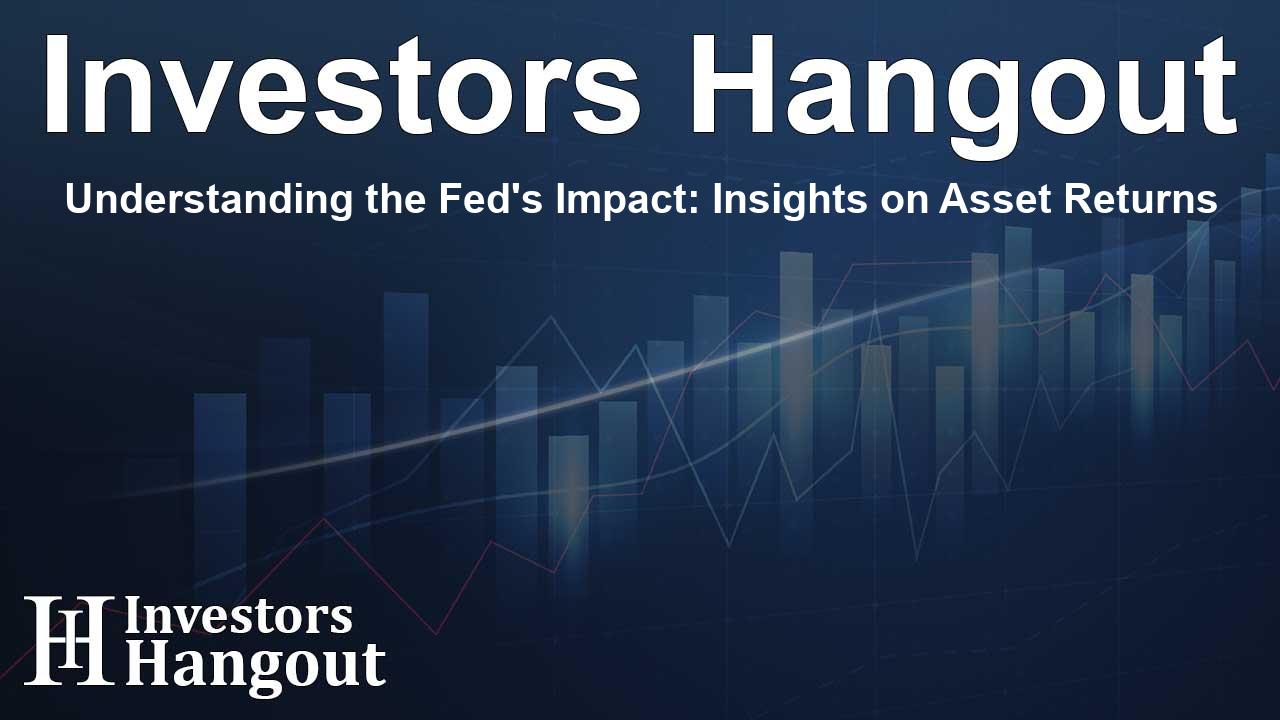Understanding the Fed's Impact: Insights on Asset Returns

The Federal Reserve's Interest Rate Decisions
The Federal Reserve plays a vital role in shaping the economy through its interest rate policies. There’s a strong expectation that the Fed will cut interest rates in its upcoming meeting. Investors are currently divided on whether the cut will be 25 or 50 basis points. These discussions are important as they could have a significant impact on market dynamics and asset values.
Market Reactions and Predictions
Recent inflation figures have shifted expectations toward a 25-basis point cut, while softer reports from the labor market are fueling speculation for a more substantial cut of 50 basis points. Predictions show a near-even split among traders, with a 51% probability for a 25 basis point reduction and 49% for a 50 basis point cut. The meeting in January is anticipated to possibly signal the beginning of a broader easing cycle.
The Easing Cycle and Its Implications
Analysts believe that if the Fed moves to cut rates, it might indicate the start of a series of reductions over the coming year, possibly exceeding 100 basis points in total. Investors are keenly awaiting clear signals from the Fed regarding the size of these cuts. Although policymakers have hinted at potential rate reductions, specific details remain uncommunicated.
Recession Concerns and Rate Cuts
Capital Economics has highlighted that one key factor for the Fed to consider is the risk of a recession. Historically, the Fed has accelerated rate cuts when economic downturns arise. However, they forecast that a recession is unlikely, leading them to believe that the anticipated rate cuts will not be as aggressive as some in the market might expect.
The Impact on Treasury Yields and Borrowing Costs
If the Fed follows through with the expected rate cuts, analysts forecast that the US Treasury yield curve will steepen. A decrease in the 2-year yield coupled with an increase in the 10-year yield could lead to a wider spread between short- and long-term bond yields. This development could raise long-term borrowing costs, tightening financial conditions and making it harder for businesses to access credit.
Equity Market Performance During Rate Cuts
In equity markets, the relationship between rate cuts and economic conditions is crucial. Analysts from Capital Economics have noted that the outcomes for equity returns depend significantly on whether a recession accompanies these cuts. Generally, rate cuts that happen without a recession tend to be followed by substantial market gains, whereas those occurring during recessionary periods often lead to considerable losses.
Mixed Results for the Dollar and Gold Prices
Moreover, the Fed's easing policy also affects other asset classes like the US dollar and gold. Historical data from earlier phases of Fed easing shows a mixed response for both the dollar and real gold prices, highlighting the complex relationship between monetary policy and market outcomes.
Frequently Asked Questions
What can we expect from the Federal Reserve in its upcoming meeting?
Analysts largely expect possible interest rate cuts, but views differ on the extent, with a range between 25 and 50 basis points being likely.
How will these cuts affect equity markets?
The effect on equities mostly hinges on whether a recession occurs. Typically, rate cuts lead to gains unless accompanied by an economic downturn.
What role does inflation data play in rate decisions?
Inflation trends are crucial in shaping Federal Reserve policies, strongly influencing expectations for rate cuts based on economic stability.
How do Treasury yields react to Fed rate cuts?
Typically, the yield curve steepens, with short-term yields dropping while long-term yields may rise, affecting both investment and borrowing costs.
What has been observed in past Fed easing cycles?
Historically, the performance of the US dollar and gold prices during Fed easing has been inconsistent, reflecting varying market conditions.
About The Author
Contact Logan Wright privately here. Or send an email with ATTN: Logan Wright as the subject to contact@investorshangout.com.
About Investors Hangout
Investors Hangout is a leading online stock forum for financial discussion and learning, offering a wide range of free tools and resources. It draws in traders of all levels, who exchange market knowledge, investigate trading tactics, and keep an eye on industry developments in real time. Featuring financial articles, stock message boards, quotes, charts, company profiles, and live news updates. Through cooperative learning and a wealth of informational resources, it helps users from novices creating their first portfolios to experts honing their techniques. Join Investors Hangout today: https://investorshangout.com/
The content of this article is based on factual, publicly available information and does not represent legal, financial, or investment advice. Investors Hangout does not offer financial advice, and the author is not a licensed financial advisor. Consult a qualified advisor before making any financial or investment decisions based on this article. This article should not be considered advice to purchase, sell, or hold any securities or other investments. If any of the material provided here is inaccurate, please contact us for corrections.
